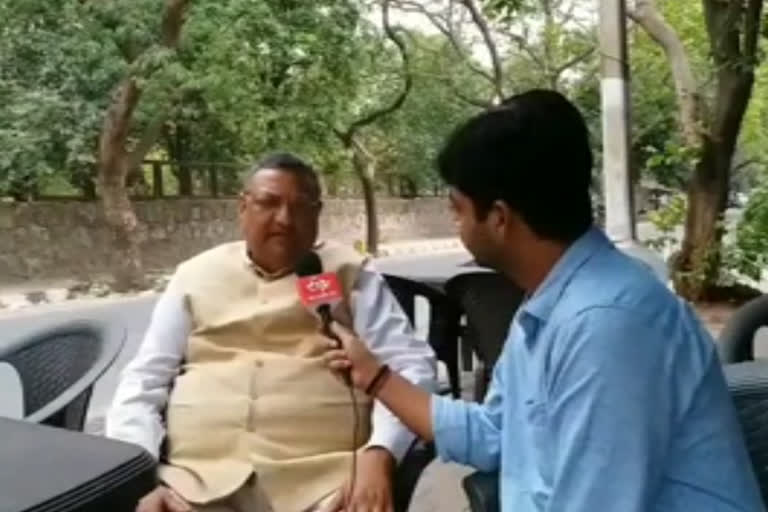New Delhi: As the Lok Sabha election 2019 is nearing its end, with the seventh phase of polling scheduled to be held on May 19, the BJP-led NDA, Congress-led UPA and other Opposition parties are putting in all their efforts to fight it out across 59 seats, spread over seven states and one Union Territory.
With major opposition parties failing to materialise the idea of 'mahagathbandhan' or 'grand alliance' across the country, except for the Samajwadi Party (SP) and Bahujan Samaj Party (BSP) in Uttar Pradesh barring Congress, the outcome of the continues to remain unpredictable.
Speaking exclusively to ETV Bharat on the likely outcome of the Lok Sabha polls 2019, political analyst MK Singh denied the possibility of any national party gaining a clear-cut mandate.
"No national party right now has a clear-cut majority, so they will have to go for post-poll alliances. If several national parties form alliances then the political alchemy of the country will change," said Singh.
When asked about the failure of the Congress, SP, and BSP to form an alliance in UP and its likely impact on the BJP's prospects, Singh pointed out: "The fact that these parties were not able to form an alliance in UP has in fact given an edge to the BJP."
He added, "I believe that the BJP is slowly and gradually inching towards forming a government but only with the help of post-poll alliance partners. "
Also read: BJP candidate praises Jinnah, Congress asks PM to apologise
The political analyst, however, stressed that the road to power isn't going to be easy for the BJP either, "2019 elections aren't like 2014, the stakes are high for the BJP as they have to defend their seats in the 7th phase."
Voting in this phase will take place for 13 seats each in Uttar Pradesh and Punjab, nine in West Bengal, eight each in Bihar and Madhya Pradesh, all four seats in Himachal Pradesh, three in Jharkhand and in the lone seat of Chandigarh.
So far, polling in 483 constituencies is over.



